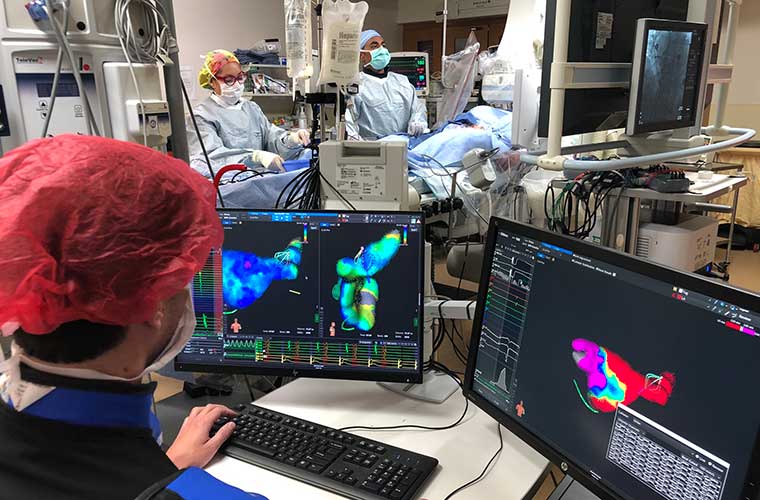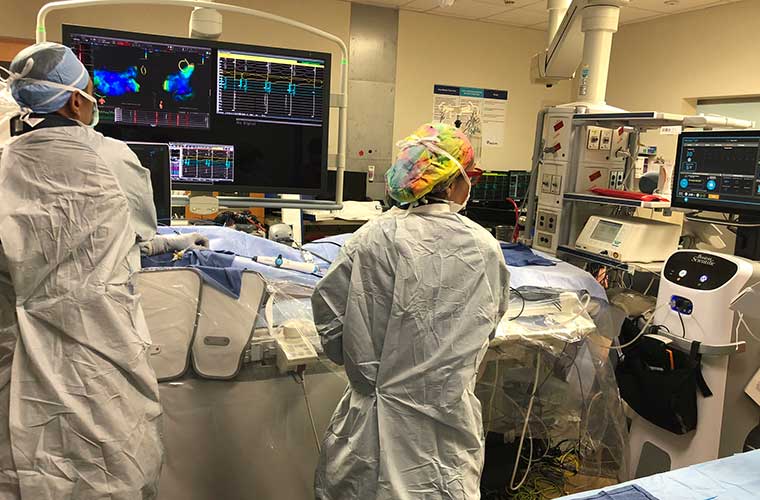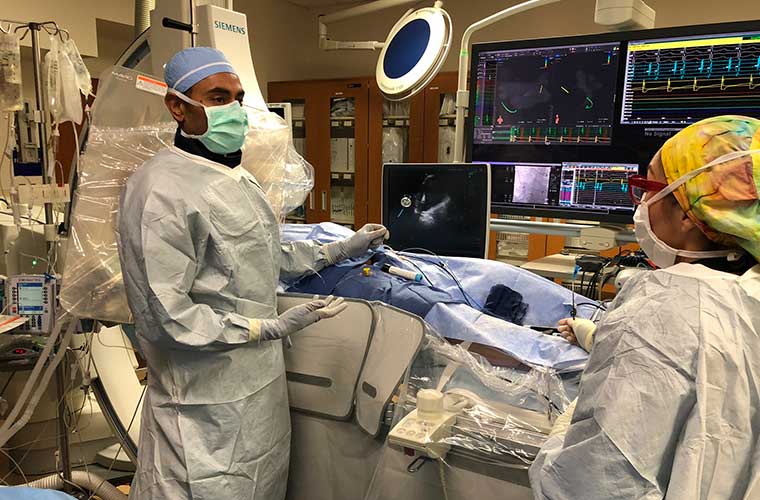St. Joseph’s Hospital Brings New Treatment for AFib to Central Florida

A new cryoablation procedure designed to improve treatment of paroxysmal atrial fibrillation (AFib) is being offered by St. Joseph’s Hospital Heart and Vascular Institute.
The hospital, part of BayCare Health System, participated in the research trials of the equipment used. Now, St. Joseph’s is the first hospital in Central Florida and the third in the state to perform the ablation procedure after FDA-approval in September of a specialized cardiac cryoablation catheter for the treatment of AFib.
AFib is a heart condition that occurs when the heart’s chambers are out of sync, creating irregular beating that can lead to blood clots and serious heart-related complications such as stroke or heart failure. This new technology provides physicians a wider range of tools to address pulmonary vein anatomies to help address some cases of AFib.
Interventional Cardiologist Kevin Makati, MD, performed the first procedure last month shortly after FDA approval. He was the principal investigator during the clinical trials of the equipment starting in 2020 at St. Joseph’s Hospital. Through research and participation in clinical trials, BayCare and its physicians partner with leading scientists around the world to drive medical innovation, ensuring patients and the West Central Florida and Tampa Bay communities have access to the best potential treatment options possible.

“This is yet another example of how the St. Joseph’s Hospital Heart and Vascular Institute leads from the front,” said Phil Minden, St. Joseph’s Hospital president. “We are so proud to be a center where our clinicians and team have the opportunity to participate in cutting-edge technology that will help provide advanced, exceptional care to our patients.”

As one of the nation’s Top 50 cardiovascular hospitals as recognized by PINC AI™ and reported by Fortune, St. Joseph’s Hospital Heart and Vascular Institute is a clinical leader in the Tampa Bay area and in the country. BayCare, with a total of 16 hospitals, hopes to offer this advanced technology at other facilities in the future.
